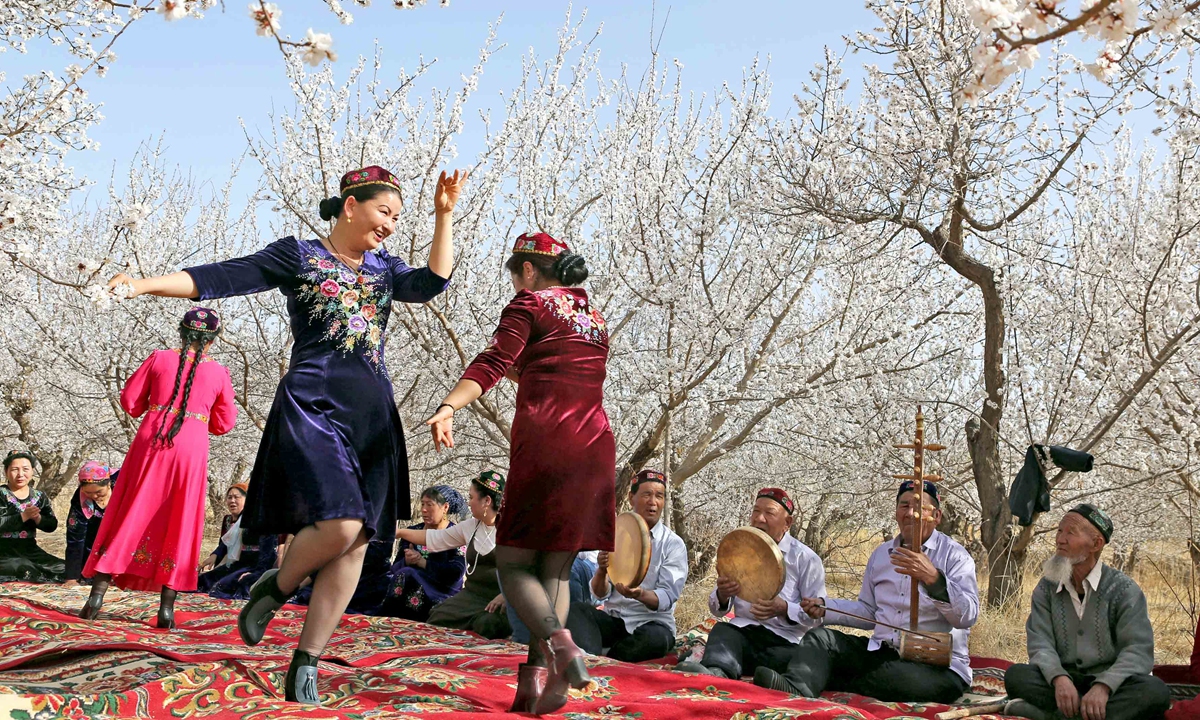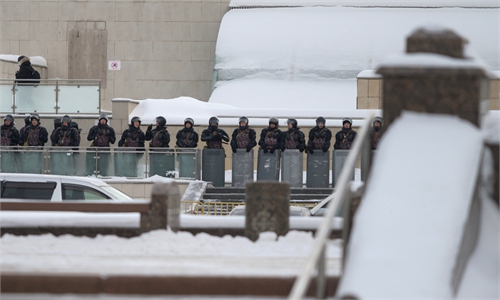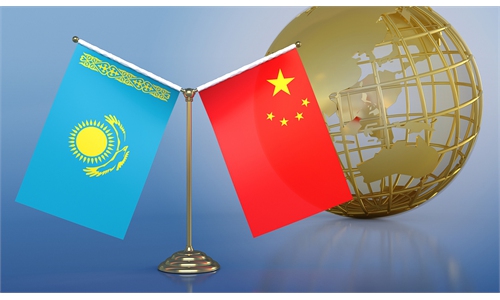Experience of achieving stability, prosperity in Xinjiang can help Kazakhstan against ‘three forces’

People are holding a Meshrep, a traditional Uygur community gathering, in Hami city of Xinjiang. Photo: IC
Facts have proved that the evil forces of terrorism, extremism, and separatism -mainly the first two - must have engaged in the recent turmoil in Kazakhstan. These rioters had likely been provided with some kind of economic incentives. The "three forces" had played an important role in the riots, but currently, it is difficult to confirm the scale of them.Northwest China's Xinjiang Uygur Autonomous Region used to have suffered seriously from the "three forces," but the region has gotten rid of the shadow of those toxic ideas. Some lessons that Xinjiang has learned the hard way perhaps could help Kazakhstan out of the situation in the long run.
First of all, since the main reason for the recent riots is the increase of fuel price, Kazakhstan should make more efforts to solve its economic problems to increase employment, which will lead to social harmony.
Second, the thoughts of many dangerous terrorists and extremists could be transformed by way of education and other means.
In Kazakhstan, there are some divisions between different ethnic groups and even within the Kazakh community. Though the country's population is predominantly Kazakh, there are actually many clans. The divergences of these clans still have an impact on the Kazakh society. Kazakhstan also has work to do to strengthen the unity of its people. In this regard, China can play a positive role in assisting the Central Asian country counter the influence of "three forces."
Chinese State Councilor and Foreign Minister Wang Yi said on Monday that China is willing to strengthen cooperation with Kazakhstan in law enforcement and security sectors. In my opinion, these efforts are likely to be made under the mechanism of the Shanghai Cooperation Organisation (SCO). The Collective Security Treaty Organization has intervened in the Kazakhstan crisis by sending peacekeeping forces. And the SCO will definitely not sit back and let the situation deteriorate, as Kazakhstan is an SCO member state.
At this very moment, SCO member states can hold a meeting to discuss the strengthening of cooperation. There is no need for an SCO military intervention now, but the SCO members could cooperate on anti-terrorism law enforcement, including working on extradition and combating cross-border crimes.
Although Xinjiang's society is generally stable, there is still the risk of terrorist forces spilling over into Xinjiang from Kazakhstan. Border control between China and Kazakhstan needs to be strengthened, as the two countries share a long border of more than 1,000 kilometers.
At the same time, the biggest risk that may come from the riots in Kazakhstan is the inflow of extremism and terrorism through ideology and culture into China, mainly via the internet.
For instance, when Xinjiang was under the threat of terrorism, many videos advocating violence and terrorist activities actually came from outside China. After watching, and being brainwashed by, these toxic materials, some people in Xinjiang started to engage in terrorist attacks against innocent people. Therefore, we should be extremely wary of cyberterrorism.
The author is the director of the Center of SCO Studies of the Shanghai Academy of Social Sciences. opinion@globaltimes.com.cn



